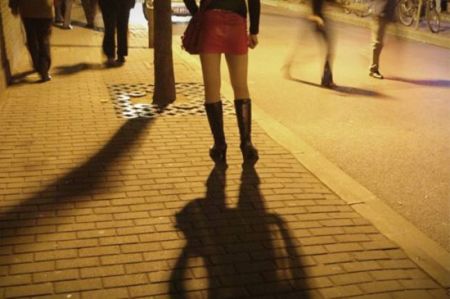DOJ busts 'high-end' brothel network used by politicians, military officers

Three individuals who enticed women to participate in a prostitution network have been arrested for operating "high-end brothels" in Massachusetts and Virginia with a clientele that included elected officials, high-tech and pharmaceutical executives, doctors, military officers and government contractors who possess security clearances.
The three suspects — Han Lee of Cambridge, Massachusetts; James Lee of Torrance, California; and Junmyung Lee of Dedham, Massachusetts — have been charged with conspiracy to coerce and entice to travel to engage in illegal sexual activity, which is punishable by up to five years in prison and a fine of $250,000.
According to charging documents, the defendants operated the interstate prostitution network with multiple brothels in Cambridge and Watertown, Massachusetts, as well as Farifx and Tysons, Virginia, since at least July 2020. The defendants established the "infrastructure for brothels in multiple states which they used to persuade, induce and entice women — primarily Asian women — to travel to Massachusetts and Virginia to engage in prostitution," a statement from the U.S. Justice Department reads.
Investigators say the defendants are alleged to have rented high-end apartment complexes for as much as $3,664 per month to serve as brothel locations. The defendants also allegedly coordinated airline travel and transportation for the women and let them stay in the apartments overnight to encourage their participation in the network.
The network advertised itself on two websites, purportedly advertising nude Asian models for professional photography as a front for prostitution. The website listed the "height, weight and bust size of women available for appointments and depicted nude and/or semi-nude photographs of each."
"The women listed as available on the websites updated frequently, with updates to include 'coming soon' or 'open' to reflect an impending arrival of new women arriving in the area," the DOJ statement adds.
Before potential clients could book an appointment, they had to provide their full names, email addresses, phone numbers, and an employer name and a reference if they had one.
"It is further alleged that the defendants maintained local brothel phone numbers which they used to communicate with verified customers and schedule appointments via text message," the statement continues.
"In these text message exchanges, the defendants allegedly sent customers a 'menu' of available options at the brothel, including the women and sexual services available and the hourly rate. Additionally, the defendants allegedly texted customers directions to the brothel's location — a high-end apartments — where they engaged in commercial sex with the women."
Depending on the services, the network charged as much as $350 to $600 per hour.
To conceal the proceeds, the defendants are believed to have deposited thousands of dollars of cash through peer-to-peer transfers and their personal bank accounts.
"Additionally, it is alleged that the defendants regularly used hundreds of thousands of dollars of the cash proceeds from the prostitution business to purchase money orders (in values under an amount that would trigger reporting and identification requirements) to conceal the source of the funds," the DOJ stated. "These money orders were then used to pay for rent and utilities at brothel locations in Massachusetts and Virginia."
Joshua Levy, acting U.S. attorney for Massachusetts, said during a press conference that the case began in the summer of 2022 after authorities identified several commercial sex buyers through surveillance phone records and interviews.
Levy explained that prospective buyers had to complete an online survey and provide personal information, including their driver's license photos, employer information and credit card information, before they could make an appointment. Levy also said that many buyers would have to pay a monthly fee to take part in what he described as the defendants' "scheme."
"The buyers who made up this ring hail from an array of professions," Levy said, according to CNN. "They are the men who fuel this commercial sex ring. There are potentially hundreds of individuals who took these services as commercial sex buyers."
Samantha Kamman is a reporter for The Christian Post. She can be reached at: samantha.kamman@christianpost.com. Follow her on Twitter: @Samantha_Kamman




















